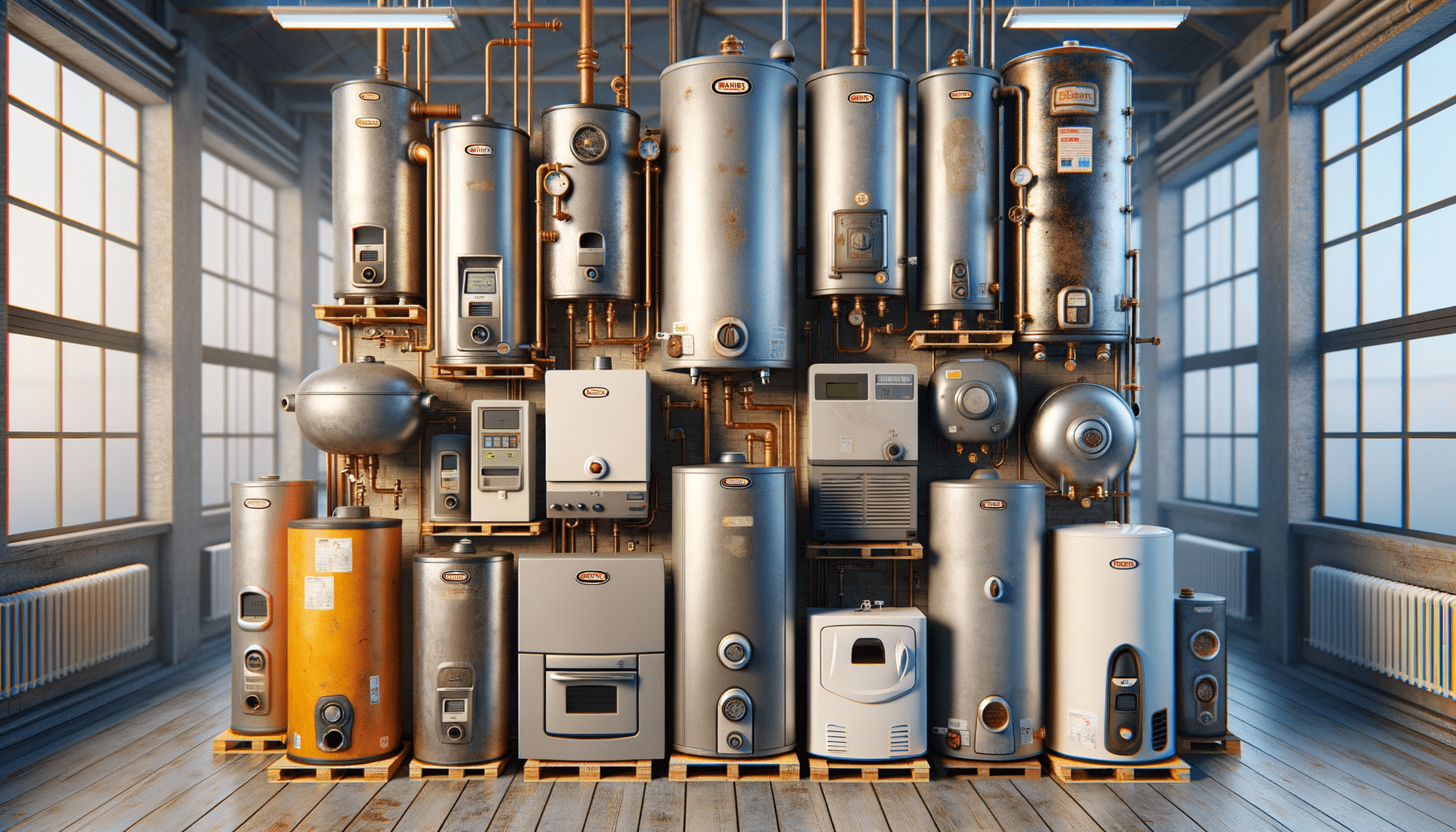Need a New Water Heater or Boiler? Need An Old One Repaired? Here Are Your Options..
Exploring the options for water heaters and boilers can ensure you find the right fit for your home.

Understanding Water Heaters and Boilers
Water heaters and boilers are essential components of many households, providing the necessary hot water for daily activities and, in some cases, heating the home. While both serve similar functions, they operate differently and are suited to different needs. Water heaters are typically used for domestic hot water supply, heating water for showers, dishwashing, and other household needs. They come in various types, including tankless, storage tank, and heat pump water heaters. Boilers, on the other hand, are primarily used for space heating, circulating hot water or steam through radiators or underfloor systems.
The choice between a water heater and a boiler largely depends on your household’s specific requirements. For instance, if you need a system that provides both hot water and heating, a boiler might be the more suitable option. However, if your primary need is hot water for domestic use, a water heater would suffice. Understanding these differences is crucial in making an informed decision that aligns with your home’s energy needs and efficiency goals.
Types of Water Heaters: Finding the Right Fit
When it comes to water heaters, there are several types to consider, each with its own advantages and considerations. The most common types include:
- Storage Tank Water Heaters: These are the most traditional type and store a large volume of hot water, ready for use when needed. They are generally more affordable upfront but may have higher energy costs due to standby heat loss.
- Tankless Water Heaters: Also known as on-demand water heaters, these units heat water only when it is needed, offering energy efficiency and endless hot water supply. However, they can be more expensive to install.
- Heat Pump Water Heaters: These use electricity to move heat from the air or ground to heat water, making them very energy-efficient. They are ideal for warm climates and can significantly reduce energy consumption.
Choosing the right type of water heater depends on various factors such as household size, budget, and energy efficiency preferences. It’s essential to weigh the initial costs against potential long-term savings and the specific needs of your household.
Boilers: A Comprehensive Overview
Boilers are versatile systems that can provide both heating and hot water, making them an excellent choice for homes in colder climates. There are several types of boilers, including:
- Combi Boilers: These are compact units that provide both heating and hot water without the need for a separate water tank, making them ideal for smaller homes.
- System Boilers: These require a separate hot water cylinder but not a water tank, offering a balance between space-saving and efficiency.
- Conventional Boilers: Also known as regular boilers, these require both a water tank and a hot water cylinder, making them suitable for homes with high hot water demand.
When selecting a boiler, it’s important to consider the size of your home, the number of bathrooms, and your heating needs. Boilers are generally more expensive to install than water heaters but can provide significant savings in energy costs over time.
Energy Efficiency: Making a Sustainable Choice
With growing awareness of environmental impact and rising energy costs, energy efficiency has become a crucial factor in choosing a water heater or boiler. Modern systems are designed to be more efficient, reducing energy consumption and minimizing carbon footprints. Look for systems with high Energy Factor (EF) ratings or those certified by energy efficiency programs.
Some tips for enhancing energy efficiency include:
- Investing in a system that matches your household’s hot water and heating needs to avoid over or under-sizing.
- Considering the use of solar water heaters or integrating renewable energy sources to further reduce dependency on fossil fuels.
- Regular maintenance to ensure the system operates at peak efficiency.
By prioritizing energy efficiency, you not only contribute to environmental sustainability but also enjoy reduced utility bills, making it a win-win situation.
Installation and Maintenance Considerations
Proper installation and maintenance are critical to ensuring the longevity and performance of your water heater or boiler. Professional installation is recommended to ensure safety and compliance with local regulations. It’s also important to consider the location of the unit, as proper ventilation and accessibility can impact performance and maintenance.
Regular maintenance, such as flushing the tank to remove sediment build-up or checking for leaks, can prevent costly repairs and extend the life of the system. Many manufacturers offer warranties, but these often require proof of regular maintenance to remain valid.
In conclusion, choosing the right water heater or boiler involves careful consideration of your household needs, budget, and environmental impact. By understanding the different options and their benefits, you can make an informed decision that provides comfort and efficiency for years to come.